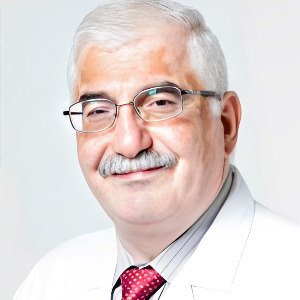Diabetes is one of the world's most critical health issues. Blood vessel disease, also known as angiopathy, is a severe consequence of diabetes that is characterized by aberrant angiogenesis. Angiogenesis is distinguished from vasculogenesis, which is de novo vessel formation from hematopoietic progenitor cells, Abnormal angiogenesis and atherosclerosis by the formation of new blood vessels from pre-existing vessels. Angiogenesis, on the other hand, is not always helpful and is frequently linked to pathologic diseases, in which case it is referred to as pathologic angiogenesis. The angiogenesis signal in diabetes is regulated differently depending on the organ, tissue, and cell type. Blood arteries that convey oxygen-rich blood away from the heart are affected. These vessels transport blood to various regions of the body.
- Abnormal angiogenesis and atherosclerosis
- Wound healing defects in diabetes
- Abnormal angiogenesis and cancer

Mahir Khalil Ibrahim Jallo
Gulf Medical University, Canada
Yong Xiao Wang
Albany Medical College, United States
F Buck Willis
Belize Bible College, Belize
Sujith Rajan
NYU Long Island School of Medicine, United States
Amy Gutman
AdventHealth; Tough Love MD, United States
Paraskevi Theofilou
Hellenic Open University, Greece


Title : Adipose MTP deficiency protects against hepatic steatosis by upregulating PPAR activity
Sujith Rajan, NYU Long Island School of Medicine, United States
Title : Important roles and mechanisms of novel calcium signaling in diabetes-induced vascular dementia
Yong Xiao Wang, Albany Medical College, United States
Title : Does winter melon (Benincasa hispida) improves nutritional values and ameliorating glycaemic parameters?
Wan Rosli Wan Ishak, Universiti Sains Malaysia, Malaysia
Title : Diabetes reduction (pre-diabetes and type 2) with integrative medicine
F Buck Willis, Belize Bible College, Belize
Title : The menopausal mind: Reframing female senescence as a neuroendocrine disorder with root cause management strategies
Amy Gutman, AdventHealth; Tough Love MD, United States
Title : Bridging the gap: Coaching patients on GLP-1s for sustainable outcomes beyond the prescription
Keith Hersey, Master Your GLP-1, United States